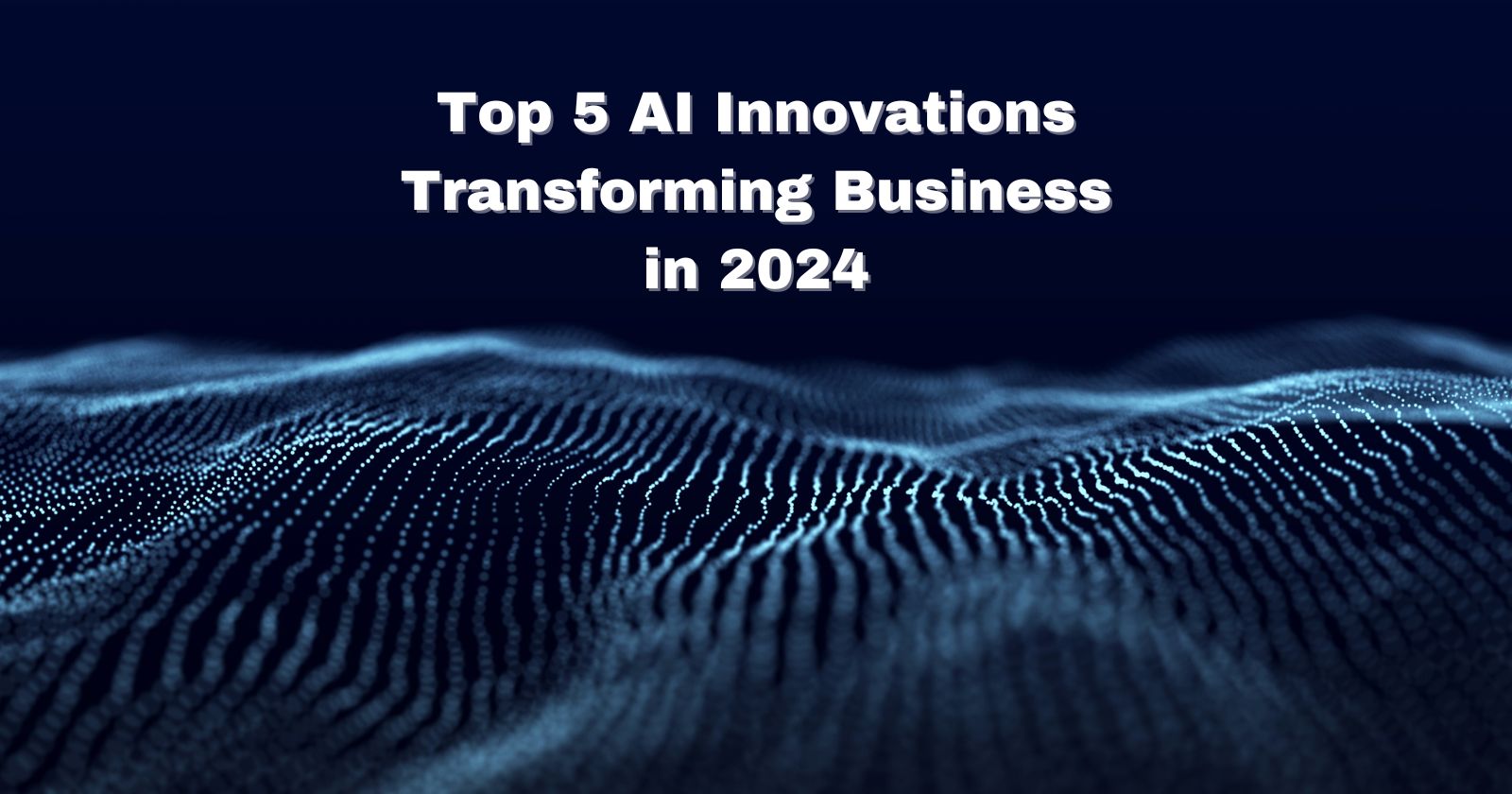Top 5 AI Innovations Transforming Business in 2024
 Shahriar Rashid
Shahriar Rashid
Artificial Intelligence (AI) is no longer just a buzzword—it's a driving force behind major business transformations. In 2024, AI innovations are taking business efficiency, customer experience, and decision-making to the next level. From AI-powered analytics to generative content creation, the scope of AI’s influence is expanding rapidly. In this article, we’ll explore the top five AI innovations that are making a significant impact in the business world this year.
1. AI-Powered Business Intelligence
AI-powered business intelligence tools are becoming indispensable for decision-making. Platforms like Microsoft Power BI and Google’s BigQuery now include advanced AI capabilities that help organizations analyze complex data sets, spot trends, and make real-time predictions.
Example Use Case: Retailers are using AI to track inventory levels and predict customer demand. This enables them to optimize stock, minimize overproduction, and reduce costs, ensuring that the right products are always available to customers.
Why It Matters:
AI business intelligence tools not only automate data analysis but also uncover patterns that might be missed by human analysts, providing a competitive advantage.
2. AI-Enhanced Customer Service through Chatbots
The capabilities of AI chatbots have grown beyond simple FAQs. Modern AI chatbots, powered by natural language processing (NLP), can engage customers in meaningful conversations, understand their intent, and provide personalized responses.
Example Use Case: Companies like Slack and Shopify use AI-powered chatbots to handle customer inquiries, saving time and improving response times. These chatbots can resolve complex issues, escalate cases to human agents when needed, and even perform transactional tasks.
Why It Matters:
With AI-enhanced customer service, businesses can offer 24/7 support without burning out human teams, ensuring a consistently high customer experience.
3. Autonomous AI Systems for Operations Management
Robotic Process Automation (RPA) has evolved into more sophisticated autonomous AI systems. Tools like UiPath and Automation Anywhere now incorporate AI to automate repetitive tasks, such as invoice processing and compliance checks, freeing up employees for more strategic roles.
Example Use Case: Banks and financial institutions use AI-driven RPA to process thousands of transactions daily, reducing processing time and minimizing the risk of human error.
Why It Matters:
AI-driven operations management enhances efficiency and accuracy, enabling organizations to scale operations without proportionally increasing overhead costs.
4. Generative AI for Content Creation and Marketing
Generative AI models like OpenAI’s GPT-4 are transforming content creation, from blog posts and product descriptions to email marketing and ad copy. These models can be fine-tuned to match a brand’s voice, tone, and style, producing high-quality content in a fraction of the time it would take a human.
Example Use Case: Marketing agencies leverage generative AI to create SEO-optimized content that ranks higher in search engines. This allows them to produce more content consistently while maintaining quality.
Why It Matters:
Generative AI frees up human resources for strategic planning and creativity, while handling large volumes of content with ease.
5. AI for Cybersecurity and Threat Detection
With cyber threats on the rise, AI has become an essential tool in cybersecurity. AI-based security solutions like Darktrace and CrowdStrike use machine learning to identify unusual activity, predict potential threats, and respond in real-time.
Example Use Case: Enterprises use AI-driven threat detection to monitor thousands of endpoints and prevent data breaches. These systems can detect anomalies and alert security teams before malicious activities escalate.
Why It Matters:
AI’s ability to process vast amounts of security data and respond instantly helps businesses safeguard their digital assets in an increasingly risky cyber environment.
The adoption of AI innovations is no longer optional for businesses looking to thrive in 2024 and beyond. Companies that leverage these technologies will be better equipped to adapt to market changes, streamline their operations, and offer better customer experiences. As AI continues to evolve, its potential to reshape the business landscape is limitless.
Subscribe to my newsletter
Read articles from Shahriar Rashid directly inside your inbox. Subscribe to the newsletter, and don't miss out.
Written by
